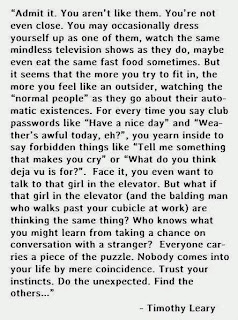"Get
that taken care of! Cedar splinters reappear, even after decades," I was
warned by Glen Snook, a self-sufficient man. In his 80's, a good friend, he was
a giant of a fellow at about 6 foot 4, and he lived in a shoe-box house he'd
built himself on Denman Island, soon after the last Great War. "Great? Ha!
Nothing great about wars, or about scars for that matter, cedar or
otherwise."
"Just
keep going and never look back," Glen observed at the eventuality of my
having to leave Denman Island. He was affirming; "A reason, a season, a
lifetime." Time on Denman had come to an end. There were other things to
do, oceans to sail, lands to visit. While there, my property, for all its
beauty, had both injured and marooned me. 1996 was the year of constructing my
own house, with a handsaw, right next to the sea, but it also was a year of my
building a fulcrum between a past and present. (Come to think of it, does not
each moment provide that fulcrum too?) So much loss attended the years
concerning Denman, and the scars run deep. We all have them, scars that once
felt a wound, and given the right moment, we pluck up their stories again, or
we bury them yet deeper beneath the skin, cover them up, that others might not
see.
When
I carried the squared cedar tie-beam for the foundation I was creating I was
nearly 18 years younger, bare-chested, and strong. I was not then in a
wheel-chair, and though I had had my spine welded together with chips from my
hips, some 20 years previous to that, I still was pushing the limits of
endurance and tolerance. But later, in 2004, when titanium rods and screws
replaced my bones, the old fusion showed it'd been cracked all along, so
hair-lined that no x-ray had picked it up. Ha! At the very least the chronic
pain I've continually experienced was given validity! Then again, within a year
or so of getting the spinal hardware, I became power-chair dependent, now
nearly eight years ago. And the condition grows worse. They said I'd not work
again, but six more years of teaching proved my point; there are ongoing wounds
and pains that need not hold one down, ha! At least, not until...
Too
much personal info! Of what benefit to others that I reveal? I remember at
twelve years old reading of a forlorn Romeo saying to Benvolio, "You jest
at scars that did not feel the wound." Ha! Shakespeare was for me! After
all, we do "take on so." To quote Socrates, "Of what use, the
unexamined life?" (or someone like him.) Still, it feels solipsistic, an
exposition of my own scars.
Yet
scars happen. Physical or psycho-ma-logical, scars carry their own story. And
mine, in the deep scratches of cedar on the right side of my chest, arise and
provoke at me, repeatedly, over nearly eighteen years now. Each time the bits
of splinters get scoured sufficiently away the skin grows over them and they
disappear for sometimes a year or two, but then the tiny bits of wood remake
their way to the surface, and irritate the heck out of me. So too for memories?
So too for happenstances? So too for the choices we made? So too for the
slip-ups and falls and the cuts and bruises of a lifetime. They resurface. The
ones I'm surprised to see, among my many scars, are the ones whose origins I
have forgot. Not because I am no longer bothered by them, but because they no
longer bother me; the distinction, though subtle, is significant, yes? No
pains?
We
each have a past. We each have wounded and been wounded. And for some the scars
run deep and cannot be ignored. Anyone public sees the unnatural cicatrix
across a face, or on the skin where one 'ought not' to be. It is the deeper
scars, those in the psyche that are not so readily seen. And even those can
surface too. But when we overcome the past (possibly by realizing that all that
was, and all that could be, was all that we could be, or we would have done
other) then we can forgive ourselves, and so too the perpetrators of our scars.
Sure, the irritant remains. There are some things that do not go away. Product
presents itself in many forms, but attitude therein and thereafter remains our
choice. Ha! My scars remind me to take care. Yours?
.JPG)
.JPG)



.JPG)








.jpg)
.jpg)








.jpg)



.jpg)